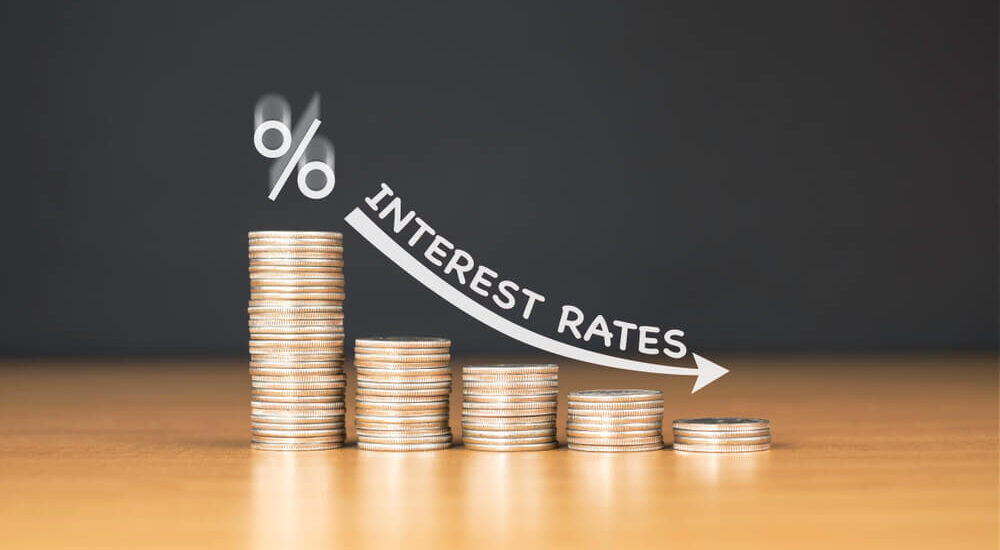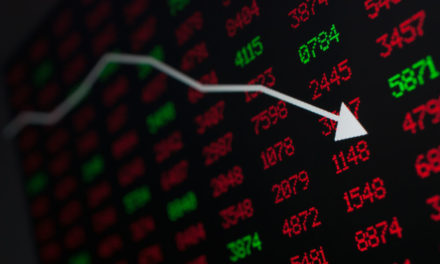The Federal Reserve just announced an emergency interest rate cut of 0.5% in response to the growing economic uncertainty surrounding last week’s coronavirus correction on U.S. stock markets.
It is the first such emergency cut to its benchmark interest rate since the Great Recession and the move of course sent stocks shooting upward shortly after the opening bell this morning — before they then crashed back down. After rising into the black, as off 11:40 a.m. EST, shortly after Fed Chair Jerome Powell spoke to the media, the Dow Jones is down 397 points, or 1.5%, the S&P 500 is down 1.3% and the Nasdaq 1.2%.
The benchmark interest rate is now between 1% and 1.25% after the new cut and three 0.25% cuts in 2019, which were the first since 2008.
The Coronavirus now goes down as one of the biggest crises in Fed history. pic.twitter.com/OtrQDI02hH
— The_Real_Fly (@The_Real_Fly) March 3, 2020
The move comes after last week’s massive losses on Wall Street, which saw the Dow lose nearly 3,500 points, or 12%, including its single-worst trading day in history on Feb. 27 when it cratered 1,192 points.
All Dow stocks ended the week down more than 10%, which is an official correction. The S&P 500 also saw big losses totaling nearly $3.6 trillion including a 4.4% decline on Feb. 27. It was the fastest decline from a record close into a correction in history outside of a one-day flash crash.
Markets rebounded Monday of this week with all three major U.S. indexes climbing at least 4.5% and the Dow rising 5.1%.
However, there is still a lot of fear regarding the coronavirus correction, hence the emergency rate cut.
“The coronavirus poses evolving risks to economic activity,” a Federal Reserve statement reads. “In light of these risks and in support of achieving its maximum employment and price stability goals, the Federal Open Market Committee decided today to lower the target range for the federal funds rate.”
Treasury Secretary Steven Mnuchin said “I applaud the Fed on this move,” but it wasn’t enough for President Donald Trump, who called on the Fed to cut further and ease.
….competitive disadvantage. We should be leading, not following!
— Donald J. Trump (@realDonaldTrump) March 2, 2020
Of course, Wall Street had already priced in a rate cut and there is a good chance the Fed could drop rates all the way to zero by the end of the year.
“The committee obviously decided not to wait for things to deteriorate — I think they know as we all should that the headlines over the next few days are likely to be alarming as they pertain to the spread of the virus,” AllianceBernstein senior economist Eric Winograd told CNBC. “The Fed obviously cannot address the virus itself by cutting rates, but they can hope to short circuit the potential for a negative response in financial markets that could make the economic impact of the virus even worse.”
The Fed cutting rates is seen as a good start by some, but of course cutting rates doesn’t mean people will all of a sudden start traveling and spending money. Quite the opposite, in fact, as the coronavirus continues to spread.
Economist and Euro Pacific Capital CEO Peter Schiff took to Twitter to share his thoughts on the matter, and he thinks things are only going to get worse.
As the stock market was selling off, threatening to erase yesterday’s Fed inspired record point gain, the Fed came to the rescue with an intra-meeting emergency 50 basis point rate cut. Not only will this cut not cure the Coronavirus, but it will make the U.S. economy sicker.
— Peter Schiff (@PeterSchiff) March 3, 2020
Since lower interest rates will do nothing to alter Coronavirus related consumer behavior, the Fed’s real concern was the reverse wealth effect lower stock prices would have on consumers and the economy. So the rate cut was not really about the Coronavirus, but the stock market!
— Peter Schiff (@PeterSchiff) March 3, 2020
Read the Federal Reserve’s full statement here:
Read Chair Powell’s opening statement from the #FOMC press conference (PDF): https://t.co/MgWLaYJcM9
— Federal Reserve (@federalreserve) March 3, 2020




